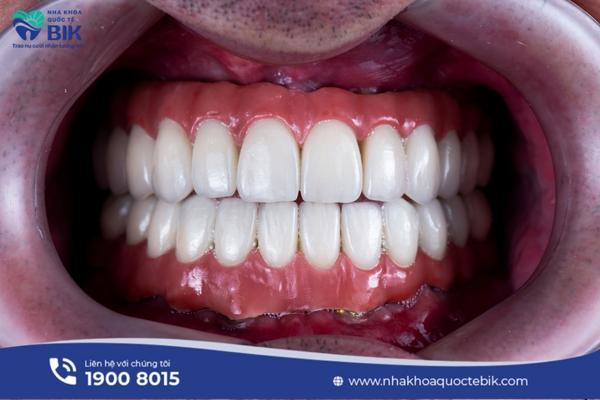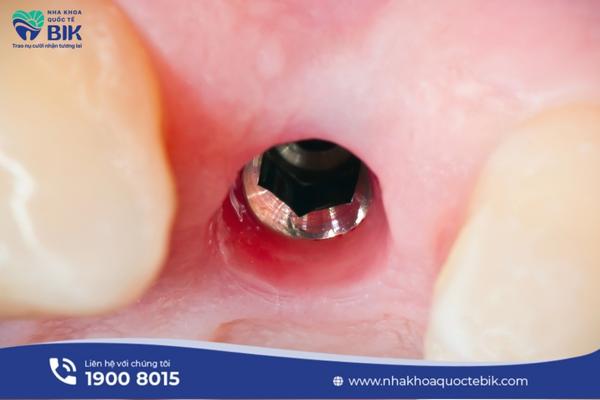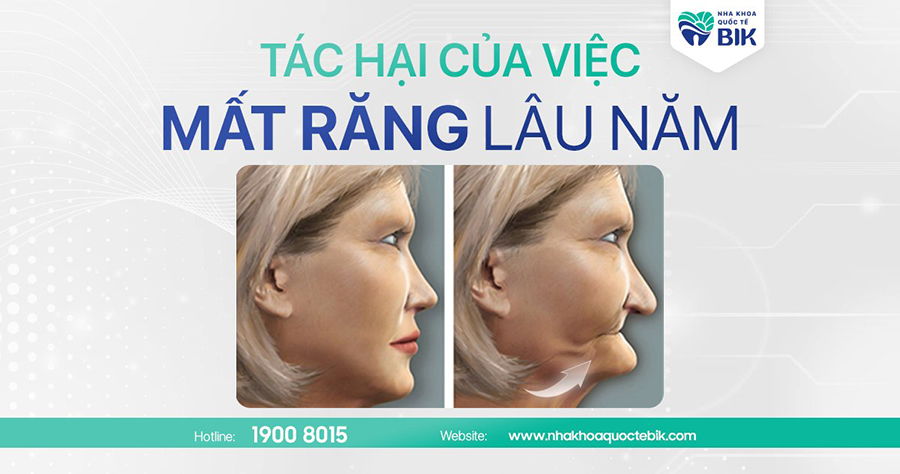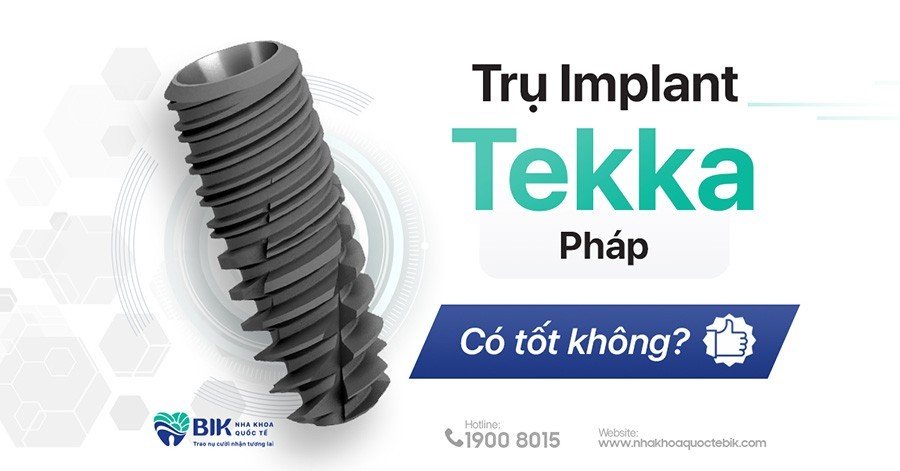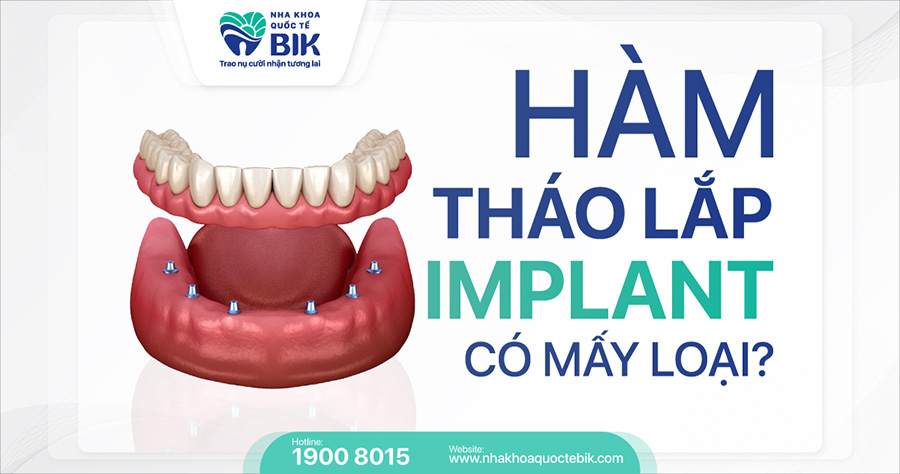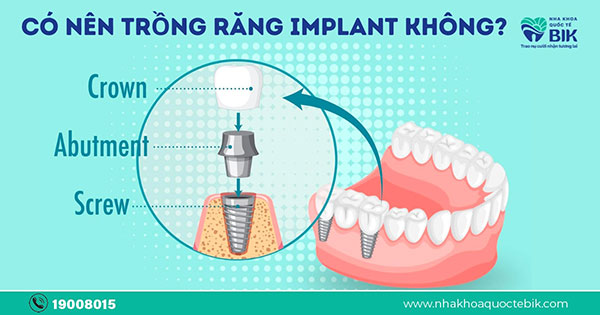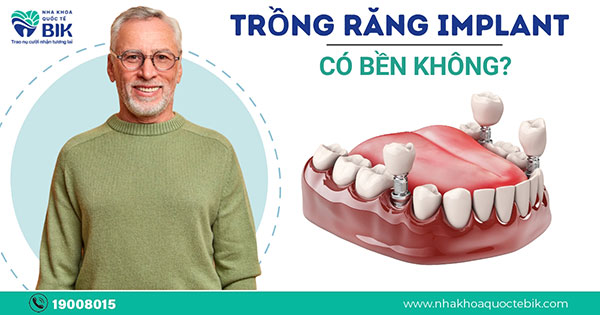
One of the things that many patients are most concerned about before getting dental implants is whether they are durable? How long can they last? Because no one wants to spend time and money to replant teeth many times, the article below will fully answer these concerns as well as clarify the truth about whether dental implants can last forever.
1. Are dental implants durable?
If you are unfortunate enough to lose a tooth due to oral disease or breakage, you need to replant the tooth early to avoid affecting your ability to chew. Moreover, if you lose a tooth for a long time, it can lead to jawbone loss and gum recession, reducing facial aesthetics and causing some obstacles to future tooth implantation.
Although the implant method has been around for a long time, many people were still hesitant to use this method before 1970. However, nowadays, implanting teeth to restore beautiful, durable teeth is highly appreciated because it has a longer lifespan than other methods such as porcelain bridges and removable dentures.
However, whether dental implants are durable or not depends on many important factors such as the quality of the implant, the doctor’s technique, and the patient’s care process, etc. If one of the above factors is not guaranteed, it is possible that the implant will fail, leading to the rejection of the implant.
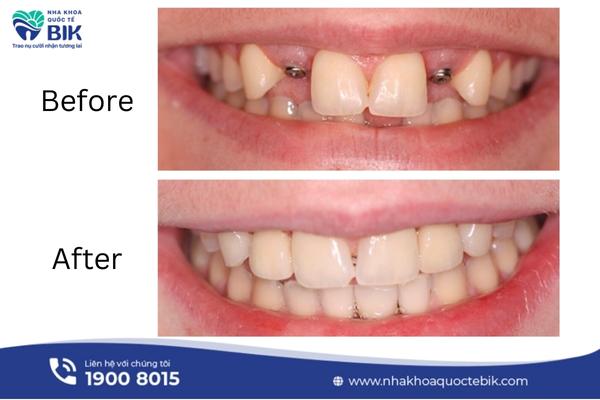
Dental implants are a popular method of restoring lost teeth because the success rate of implants is up to 98%, helping to restore chewing ability as well as enhance the aesthetics of the face. In addition, there is also an outstanding advantage that dental implants have a long-term use. To determine the longevity and durability of the Implant method, scientists rely on two factors: Historical witnesses and annual scientific reports.
2.1 Historical witnesses
The existence of implant pillars in the oral cavity after implantation was confirmed by a patient of Professor Per-Ingar Branemark – a medical doctor, specializing in orthopedic surgery in 1965. The professor successfully placed the first implant pillar for the patient Gosta Larsson, a Swedish man. Mr. Larsson was born in 1931 and passed away in 2006, so after more than 40 years, his implant teeth are still working very well, while many real teeth have become loose and broken due to age.
2.2 Scientific report
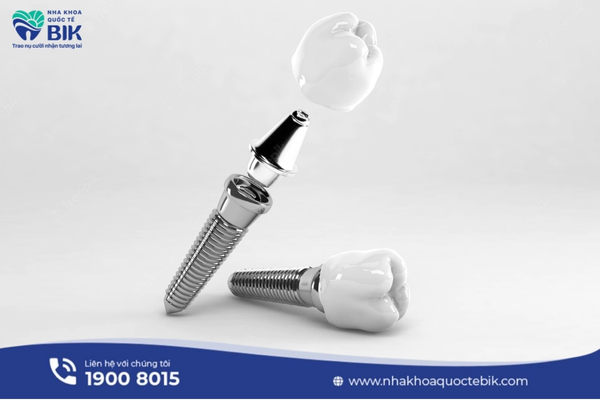
In the report by author Krebs M, et al published in 2015, he and his co-authors studied the issue of whether dental implants are durable on a sample of 4206 volunteers with 12737 implant posts from April 1991 to May 2011. The result was that the rate of dental implants remaining after 20 years was up to 93.3%, in which the rate in women was about 1% higher than in men.
According to the report of Turkyilmaz I, Tözüm TF performed on a smaller sample of 4 volunteers with 28 implants, the results were 100% that these implants had a lifespan of up to 30 years.
And other reports also show a very high rate of cases tested that resulted in the longevity of dental implants being over 20 years.
Not only that, the rate of bone loss was also proven to be significantly reduced compared to conventional methods.
The first dental implant in Ho Chi Minh City was in 1994 at the Ho Chi Minh Central Hospital of Odonto-Stomatology. The results of the implant are still very good.
3. Is dental implant good?
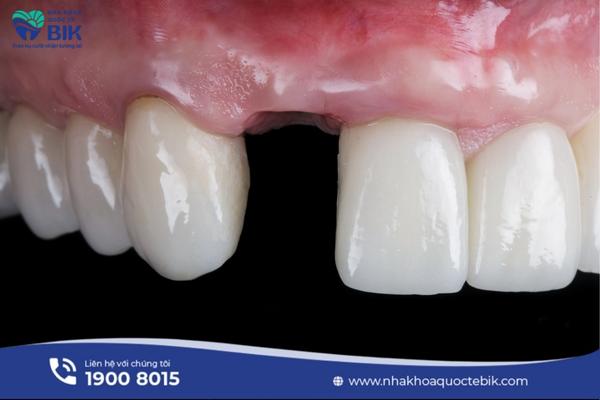
Dental implant is a modern solution, restoring both the body and root of the tooth with a complete structure like a real tooth. This technique can be applied to all cases from losing 1 tooth, many teeth or the entire jaw.
Dental implants are truly the optimal solution to overcome tooth loss in the best way with many outstanding advantages:
3.1 Preserving jawbone
Implants replace and perform functions similar to real tooth roots. Through chewing activities, they will stimulate jaw bone growth and maintain stable density, limiting bone loss. This is also the fundamental difference between dental implants and traditional methods without tooth roots.
3.2 Preserving real teeth
In the case of losing a few single teeth on the jaw, dental implants only intervene in the exact space of the missing teeth, without having to invade real teeth. In addition, dental implants will fill the gap on the jaw, effectively preventing tooth displacement (tooth movement). In addition, dental implants also help support and coordinate activities with the opposite teeth, restoring the bite correlation between the upper and lower jaws.
3.3 Restore chewing function
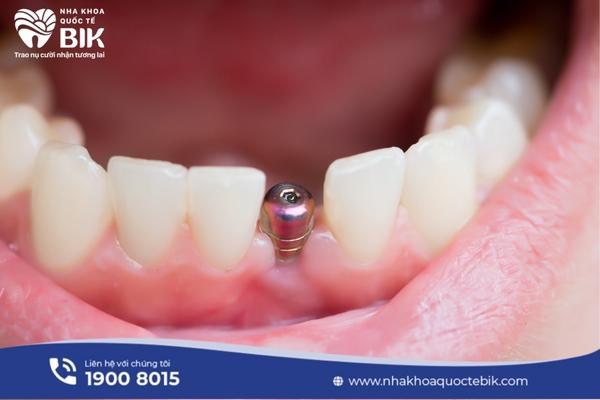
The Implant pillars are integrated and fixed in the jawbone, so they have a very high chewing force and do not move. Patients can chew firmly and comfortably like real teeth, even tough and hard foods. The existence of Implant teeth is independent, causing absolutely no discomfort or discomfort when eating and drinking.
3.4 Helps improve facial aesthetics
Implant teeth help limit bone loss, fill the gap of missing teeth, thereby limiting facial aging. The shape and color of the porcelain teeth restored on the Implant are also designed to be similar to real teeth, so they look the most natural.
Fixed dental implants will fill the missing gaps on the jaw, helping patients feel more confident when communicating. Especially in cases of long-term tooth loss, causing sunken cheeks and sagging facial muscles, dental implants help the cheek muscles become fuller, and the face is significantly improved.
3.5 Long-term use
If you implant teeth using the traditional method, you will only use them for a certain period of time, and it can also affect the adjacent teeth. Meanwhile, the implant is integrated into the jawbone and exists as a part of the body. Therefore, patients usually only need to do it once, without having to spend time and money to do it many times.
4. Why is dental implant more durable than other methods?
4.1 Implant post is inserted directly into the jaw bone
Implant teeth have 3 parts including: Implant post, Abutment joint and porcelain crown. With this structure, the replacement Implant post is similar to a real tooth, forming a solid connection with the jaw bone. At the same time, it can solve the problem of tooth loss compared to removable dentures or porcelain bridges.
4.2 Implant pillar material
The implant pillar is made of pure Titanium. This is a hard and durable material that is highly biocompatible in the oral environment, is a safe material for the body and is widely used in the medical field. 4.3 Implant placement prevents jaw bone lossThe implant pillar is firmly integrated with the jaw bone, completely preventing jaw bone loss. If using restoration methods without tooth roots, after a period of time, the jaw bone at the position of the missing tooth will be absorbed, causing the facial structure to change.
5. What factors affect the lifespan of dental implants?
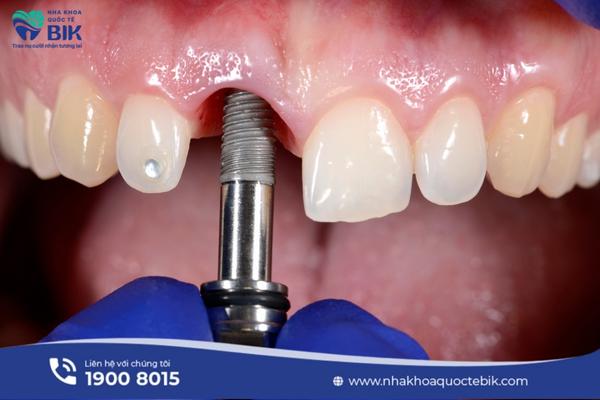
In essence, the lifespan of an implant can last from 20 to 30 years. However, how long an implant can last is also affected by the following factors:
5.1 Quality of the implant pillar
Implant dentistry is a technique that affects the jawbone and the implant pillar is fixed in the jaw, so it requires the implant pillar to ensure quality with pure Titanium material without impurities, with a clear origin. Using an implant of unknown origin and poor quality will make it difficult for the implant to integrate with the body. This leads to dangerous complications such as prolonged bleeding, gum infection, loose implant, horizontal fracture, and implant rejection.
5.2 Doctor’s skills
The doctor’s skills are the most important factor determining the success of the implant process and how long the implant will last. Because the doctor must have expertise, master the principles, and techniques that need to be precise, meticulous, and require absolute precision from the position of the implant, the tilt, the depth to the force applied. Only then can the implant last a long time and avoid dangerous risks for the patient.
5.3 Dental clinic address and supporting equipment
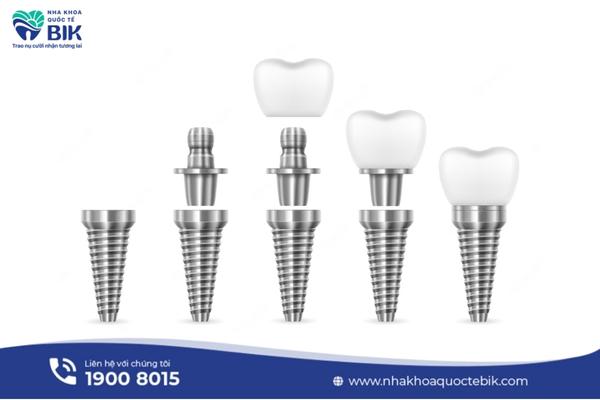
At reputable dental facilities, there will be a system of modern equipment and machinery. In addition, to ensure the safety of the implantation process, the operating room system will be separated, ensuring sterile conditions and avoiding cross-infection.
Before performing dental implants, the doctor will take a Panorex film to check the overall oral health and a CT scan using a Cone Beam machine to survey in three-dimensional space, check the quality, bone mass, etc. to determine the exact implant size.
Customers should carefully research when choosing a dental facility to ensure their own safety and no longer have to worry about the dangers that occur when performing dental implants at non-reputable dental clinics.
5.4 Oral care and hygiene after implant placement
Oral care and hygiene after implant placement also greatly affect the longevity of the implant. In the first few days, patients should avoid eating foods that are too hot or too cold, hard, chewy, sticky, etc. Limit the use of chewing force at the implant site to avoid infection.
In addition, patients need to follow the doctor’s instructions, do not arbitrarily use pain relievers, antibiotics or check the wound. In particular, you must clean your teeth and have regular check-ups according to your appointment schedule. When you encounter any unusual problems, you need to notify your doctor immediately to find a timely solution.
6. How to make dental implants last a long time?
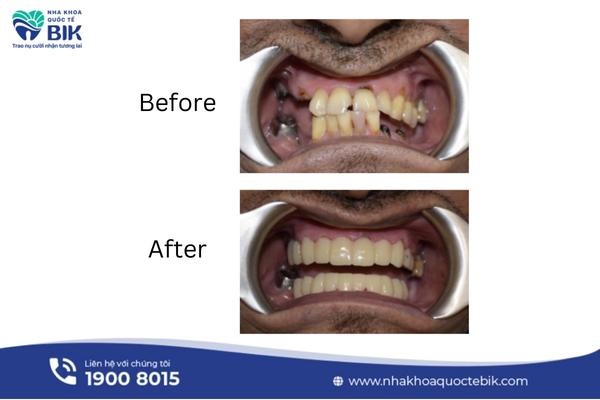
As mentioned above, dental implants can last for decades, even forever, and can be used for a lifetime if properly cared for.
6.1 Oral care habits:
Many patients often assume that these are false teeth, so they do not need much care. However, for long-lasting implant teeth, you need to brush your teeth at least twice a day, combined with dental floss and a water flosser to remove food residue stuck between teeth. Note that you should use a soft-bristled toothbrush and brush your teeth gently to avoid damaging your gums.
6.2 Choose a reputable dental clinic for dental implants
Choosing a dental clinic specializing in dental implants will help the process take place more safely and securely.
At specialized dental implant clinics, there will be full equipment, support equipment and doctors with expertise and experience in implant placement. This is an important factor in helping to maximize the longevity of the tooth.
6.3 Maintain regular check-ups
Regular check-ups check the status of the implant, in order to have timely interventions when problems arise, and also to prevent bacteria from causing oral diseases that can damage the implant.
Hopefully through this article, you have been able to answer the question “Is dental implant durable?”. However, for dental implants to last a long time or be used for life, you need to choose a reputable dental clinic for implantation and comply with proper oral care.

